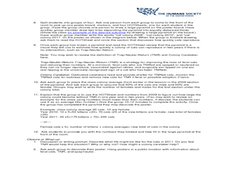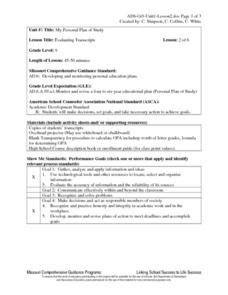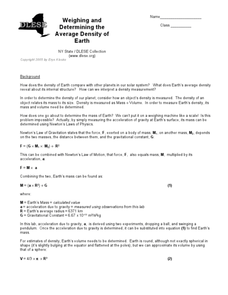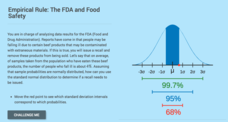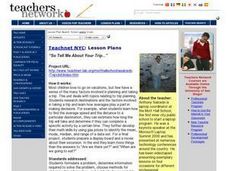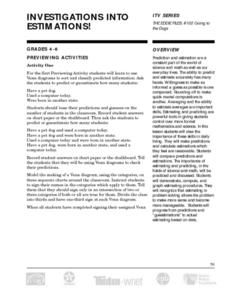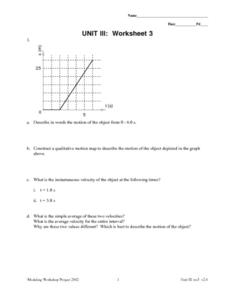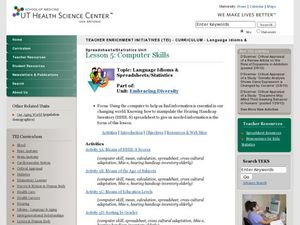Curated OER
The Tale of the Feral - Care and Multiplication of Feral Cats
Students differentiate between a feral cat and a domesticated cat. For this cat lesson plan, students use the scientific method, calculate averages, solve story problems, and learn how a caretaker can help a feral colony live safely.
Curated OER
Digger and the Gang
Help online friends Digger and Sprat from the BBC series to solve math problems! In a series of activities, your class will use data sets to calculate measurements, averages, means, and probabilities. The class completes worksheets and...
Curated OER
Applying Central Tendency
Twelfth graders calculate the mean, median, and mode of various wages. They apply these skills to asking for pay raises. They discuss whether the mean, median, or mode provide the highest wage increase.
Curated OER
Density of a Paper Clip Lab Review
Even though this assignment is brought to you by Physics Lab Online, it is best used as a math practice. Middle schoolers calculate the range, mean, mode, and median for a list of eight different paper clip densities. They analyze...
Curated OER
Evaluating Transcripts
Ninth graders review their transcripts and calculate their individual grade point averages. They brainstorm on how they can keep track of their progress in school and what information will follow them throughout their lives. Each student...
Willow Tree
Weighted Averages
Mixtures, weighted percentages, and varying speeds make problem solving difficult. The resource give learners a strategy for tackling these types of problems effectively.
Curated OER
Weighing and Determining the Average Density of the Earth
Some background information about density and Newton's Laws of gravitation and motion assist pupils in the following experiment. The procedure will help them further their understanding of gravity, pendulums, and a drop-ball experiment....
Scholastic
Study Jams! Double-Digit Division
RJ had an awesome basketball season this year! Use division by double-digit numbers to calculate his scoring average in this instructional presentation. Starting with an explanation of the terms dividend, divisor,...
K20 LEARN
Are We Golden?
Lead your class on a search for precious bones. Using a presentation, the class investigates the golden ratio in art and nature. Groups of pupils measure specific bones and find the average ratio for the class. To further cement the...
CK-12 Foundation
Computing Probabilities for the Standard Normal Distribution: The FDA and Food Safety
To recall or not to recall, that is the question. Using provided data, pupils calculate the percent of people that may fall ill on average. The scholars determine the standard deviation based upon the mean and the empirical rule,...
Teach Engineering
Creepy Silly Putty
It might be silly to determine the creep rate of putty but groups will enjoy making different formulations of silly putty and playing with them to understand how the different mixtures behave. The second part of the activity has groups...
EngageNY
The Binomial Theorem
Investigate patterns in the binomial theorem. Pupils begin by reviewing the coefficients from Pascal's triangle. They look at the individual terms, the sums of the coefficients on a row, and the alternating sum of each row. Individuals...
National Council of Teachers of Mathematics
Cash or Gas?
Which option provides the best payout? Pupils predict which lottery prize to take. They devise a method to calculate which prize would likely provide the greatest monetary value.
Curated OER
Assessing the quality of habitat for Monarch Butterflies
Students use different sampling methods to determine the population size and appropriate space for monarch butterflies. In this averages lesson plan, students complete word problems where they can accurately estimate the size of an...
Curated OER
Candy Colors: Figuring the Mean, Median, and Mode
Young scholars count candy by color and then calculate mean, median, and mode. They count candy and use the data to calculate mean, median, and mode (by color) and apply their learning to another collection of data.
Curated OER
Unit 18 Sampling
In this sampling worksheet, students calculate the mean of given sets. They determine the fractional part of a number. This one-page worksheet contains 20 problems.
Curated OER
Away we Go
Young scholars work in groups to calculate the costs of a trip to Six Flags amusement park. For this domain and range lesson, students calculate the least and greatest amounts of money needed for tickets, food, souvenirs, and airplane...
Curated OER
How To Make Faint Things Stand Out In a Bright World!
In this averaging and pixel worksheet, students solve 5 problems including finding the average value of 9 images given pixels, distinguishing between background 'noise' and the source and detecting faint sources in bright backgrounds.
Curated OER
Mean and Median
Learners define mean and median. In this "average" lesson, students calculate the mean and median for a list of given numbers.
Curated OER
"So Tell Me About Your Trip..."
Students research destinations and the factors involved in taking a trip and explore how averages play a part in making decisions. They explore how to find the average speed and the distance to a particular destination, they estimate...
Curated OER
Investigations into Estimations
Students gain the powerful tools of estimation, prediction, and averaging and discover the importance these tools have in daily living.
Curated OER
Unit III: 3
In this unit III: 3 worksheet, students describe motion in words and graph drawings. Students calculate the instantaneous velocity and average velocity. Students also graph the displacement of the object in the word problems.
Curated OER
Computer Skills
Students research computer information and use it to find the mean of things. In this computer skills lesson students are given activities in which they calculate and use a spreadsheet to enter data on the mean of their...
Curated OER
The North (Wall) Star
Young scholars engage in a lesson which shows them that celestial navigation is the art and science of finding one's geographic position by means of astronomical observations, particularly by measuring altitudes of celestial objects -...
